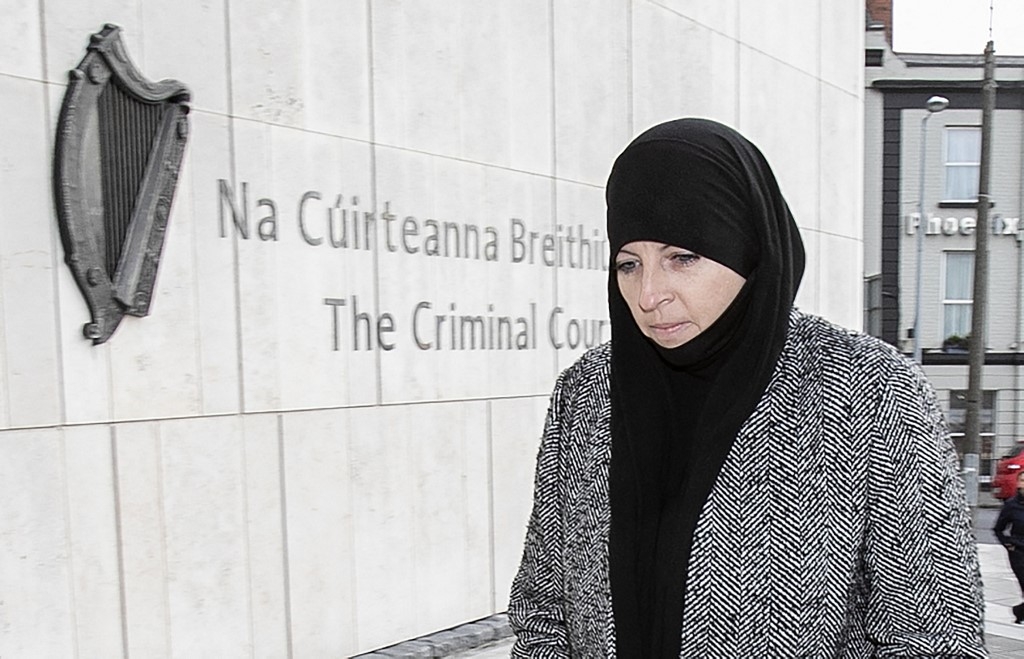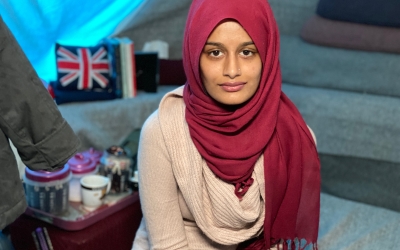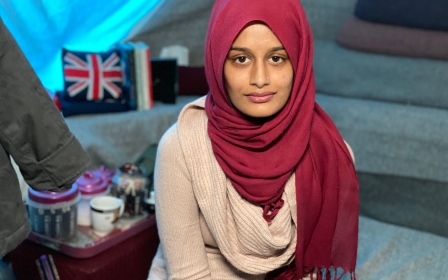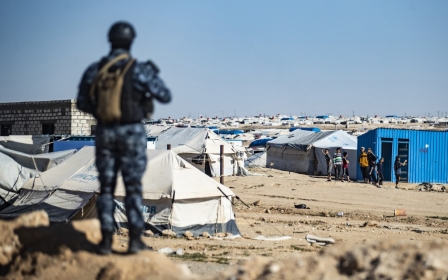Former Irish soldier who lived under Islamic State in Syria wins court battle over UK ban

A former Irish soldier charged with joining Islamic State (IS) in Syria has won a court battle against the British government barring her from entering the UK.
Lisa Smith had accompanied former Irish president Mary Robinson and Taoiseach Bertie Ahern on foreign trips, but had left the army before travelling to Syria in 2015.
She appeared remotely in front of the Special Immigration Appeals Commission (Siac) in London in April, to challenge the ban on her crossing the border into Northern Ireland, which is part of the UK.
Smith's lawyers hailed the court's decision as "hugely significant" and said it was in keeping with the terms of the 1998 Good Friday Agreement, which brought peace to Northern Ireland after decades of violence.
The British government had banned Smith from entering the UK on 29 December 2019, the day she was granted bail in Ireland on terror charges.
New MEE newsletter: Jerusalem Dispatch
Sign up to get the latest insights and analysis on Israel-Palestine, alongside Turkey Unpacked and other MEE newsletters
While Smith is from Dundalk, a border town in Ireland, her father and much of her family are from Belfast, the capital of Northern Ireland. Smith argued, therefore, that she was entitled to a British passport and to travel freely across the border into Northern Ireland.
However, the Home Office argued that she did not qualify for automatic British citizenship because her parents were not married at the time of her birth.
Smith's lawyers argued that Home Secretary Priti Patel had failed to take into account the dual nationality of those with Northern Irish parentage, whose rights are protected under the Good Friday Agreement.
Smith's solicitor, Darragh Mackin of Phoenix Law, said the ruling was "hugely significant for the upholding of basic human rights principles, which include the right to be free from discrimination".
"The decision to exclude our client was discriminatory and contrary to the basic principles underpinning the Good Friday Agreement," he added, according to the Belfast Telegraph.
"As an Irish citizen who resides in a border town, it was always asserted that to restrict her from travelling across the border was unlawful and could not be stood over.
"We warmly welcome the court's determination today, which will reinstate our client's basic rights to travel to the north of Ireland at her convenience."
Smith denies terrorism charges
Smith, a Muslim convert, travelled to Syria in 2015, where she married a suspected fighter and had a child. She was charged with membership of a terrorist group days after arriving in Ireland, in December 2019. She had been brought back to Ireland after being detained in a refugee camp in northern Syria, along with her two-year-old child.
She was granted bail later that month and denies the charges. The trial is scheduled to start in January next year.
Former Irish taoiseach Leo Varadkar had said that she should have the right to return to Ireland and that removing her citizenship would not be right.
Her case contrasts with that of Shamima Begum, the British schoolgirl who travelled to Syria in 2015 at the age of 15, and who had her citizenship rescinded in 2019.
The Home Office argued that Begum was a "citizen of Bangladeshi descent," despite being born in the UK and Bangladesh refusing to allow her to enter the country.
Alexandr Bekmirzaev, a Belarussian-Irish dual national suspected of joining IS, was stripped of his Irish citizenship in 2020.
Middle East Eye delivers independent and unrivalled coverage and analysis of the Middle East, North Africa and beyond. To learn more about republishing this content and the associated fees, please fill out this form. More about MEE can be found here.





